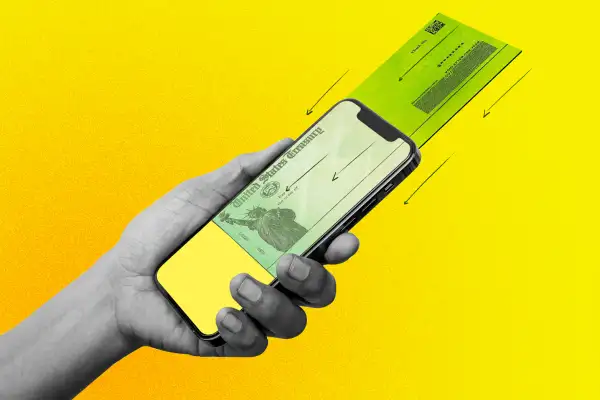White House Plans to Eliminate Social Security Payments by Paper Check

UPDATE, Aug. 4 at 4 p.m. ET: The Social Security Administration will stop issuing paper checks to Social Security beneficiaries starting Sept. 30, following President Donald Trump’s Executive Order 14247, which mandates the transition to electronic payments for all federal benefits. However, there are limited exceptions to the rule.
While the SSA has not issued a public statement, a spokesperson told Money.com in an email Monday that fewer than 1% of SSA beneficiaries currently receive paper checks and that the agency has begun “proactively contacting those beneficiaries to alert them about the change and the process to enroll in direct deposit or receive Direct Express cards.”
In a July 23 press release, U.S. Senator Elizabeth Warren, D-Mass., announced that SSA Commissioner Frank Bisignano had agreed not to eliminate paper checks entirely. While paper checks will remain available for those who qualify, the agency continues to promote the use of electronic payments.
According to the U.S. Treasury’s GoDirect site, waivers will be granted only in three circumstances: if a beneficiary has a mental impairment that makes it difficult to manage electronic payments, lives in a remote area without the infrastructure to support electronic banking or is age 90 or older. Recipients who don’t qualify for an exemption must switch to electronic payments.
Below is our original story.
Nearly half a million Americans who receive Social Security payments will be impacted by a new White House order to end Treasury payments made with paper checks.
The executive order signed by President Donald Trump on Tuesday directs the federal government to stop issuing paper checks by Sept. 30, 2025. All executive departments and federal agencies instead must make payments via direct deposit, debit/credit card payments, digital wallets and real-time transfers. Payments made to the federal government, such as fees, fines, loans and taxes, will also be processed electronically.
According to the order, exceptions will be made for folks without banking services or electronic payment access, as well as “certain emergency payments where electronic disbursement would cause undue hardship,” as determined by the Treasury Secretary. This exception is essential because roughly 4.2% of U.S. households are unbanked, representing about 5.6 million households.
The vast majority of federal payments are already issued via direct deposit. For instance, nearly 99% of tax refunds issued already this tax season — approximately 160.9 billion out of 163 billion — have been issued via direct deposit, according to the IRS.
However, approximately 456,000 Americans still receive Social Security checks by mail based on the Social Security Administration's latest data report. Social Security recipients already tend to skew older, as it's a major source of income for most people over age 65. Making the switch to direct deposit may prove challenging for many folks who are not used to banking online.
According to a Social Security Administration statement issued on Wednesday, folks who cannot use the agency's online services to change their direct deposit information will need to visit a Social Security office to process the change or call 1-800-772-1213 to schedule an in-person appointment.
Changes come at a difficult time
The crackdown on paper payments comes at a particularly vulnerable time for an already vulnerable population. Last week, the Social Security Administration announced that phone applications for Social Security benefits will no longer be offered, leaving many to wonder if instituting a tech-heavy process will prevent older and disabled Americans from getting their benefits.
However, this plan has been walked back somewhat. On Wednesday, the SSA said that it will still allow Social Security Disability Insurance, Medicare or Supplemental Security Income applicants who can't use the administration's online system to complete their claims by phone. Applicants for Retirement, Survivors or Auxiliary benefits will still need to visit a Social Security office to complete their claim if they can't use the online system.
Implementing new identification rules and eliminating paper checks marks the Trump administration’s latest push to combat the waste and fraud it claims is burdening the Treasury's payment system.
“The continued use of paper-based payments by the Federal Government, including checks and money orders, flowing into and out of the United States General Fund, which might be thought of as America’s bank account, imposes unnecessary costs; delays and risks of fraud, lost payments, theft and inefficiencies,” Tuesday's order says.
More from Money
Could Trump's DOGE Cuts Delay Social Security Payments?
Why Millions of Social Security Beneficiaries Will Receive Bigger Payments Starting in April
Social Security Is Ending Phone Applications. Millions of Americans May Now Need to Apply in Person



